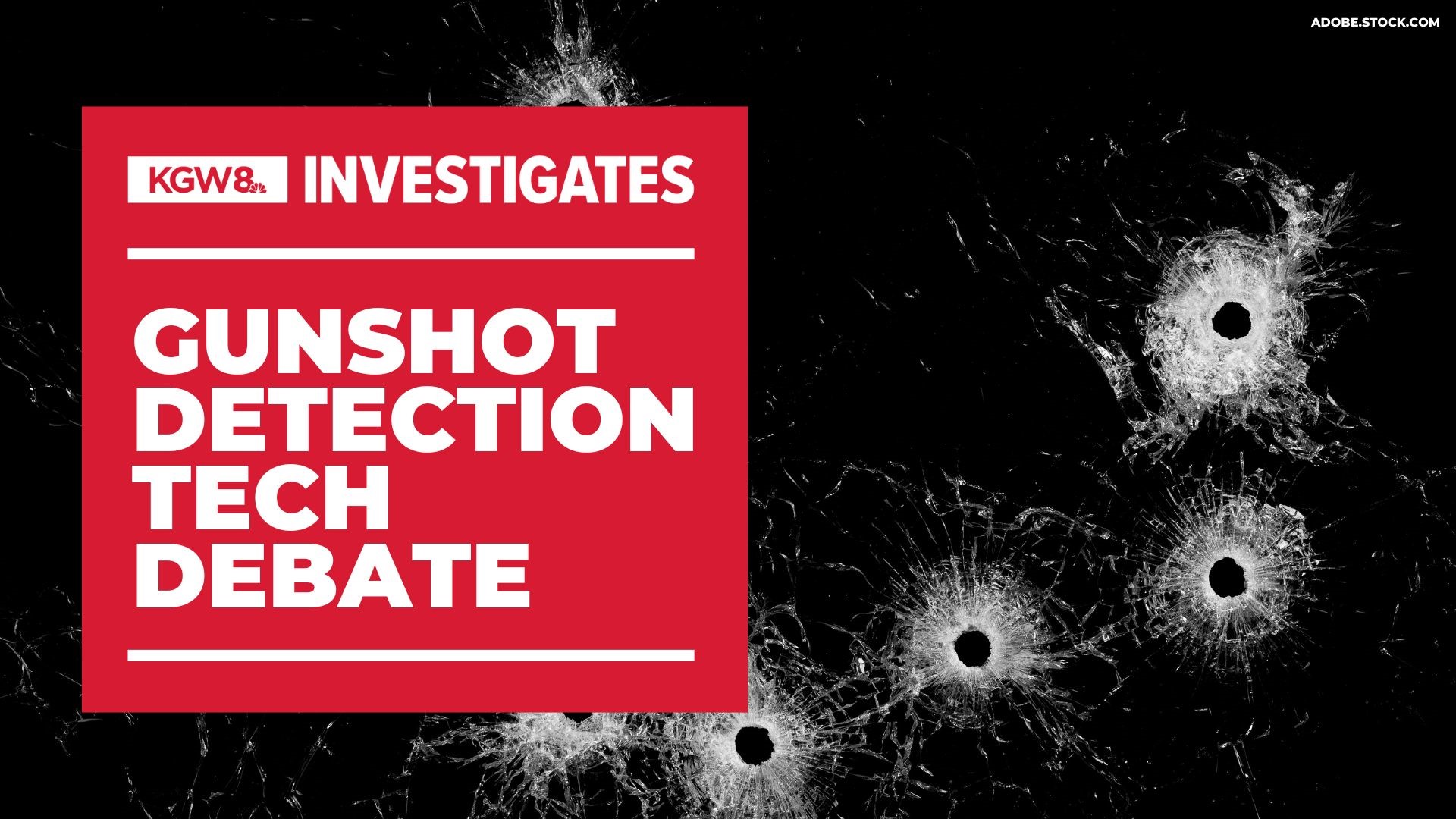PORTLAND, Ore. — Public criticism of Portland's interest in gunshot detection technology is mounting as city leaders review the proposals of four companies who wish to contract with Portland for a yearlong pilot program.
The Portland Committee on Community-Engaged Policing, an independent group, held a three-hour-long public hearing on gunshot detection technology Wednesday night.
Nearly every speaker shared concerns about the technology, with many saying that while rising gun violence is a clear problem, gunshot detection technology is not the solution.
In February, ShotSpotter, EAGL Technology, Flock Safety and Twenty20/Acoem responded to Portland's request for proposals to launch a pilot program.
The Focused Intervention Team Community Oversight Group or FITCOG, a Portland police community oversight group, recommended the technology to city leaders in 2022, and Mayor Ted Wheeler decided to move forward with that recommendation.
Speakers at Wednesday meeting shared concerns over efficacy, privacy, cost, police resources and over-policing specific neighborhoods.
"They're a waste of taxpayer money, police resources and further the divide between police and communities by putting said communities at additional risk for confrontation with police officers," said Devin Peters.
Aje Amaechi with nonprofit organization Freedom to Thrive said interest in this technology feels like a misplaced response to gun violence.
"Many people feel powerless right now to curb gun violence. This lack of agency can cause some to seek out just about any solution or any action that makes them feel more in control," Amaechi said. "This drive to implement gunshot detection technology is clearly based on this emotional panic that makes people want to act right now."
Amanda Lamb, representing the Oregon Justice Resource Center, said gunshot detection technology is ineffective and would unnecessarily increase the workload of an already overburdened Portland Police Bureau.
"Portland does need long-term, community-centered approaches to addressing our gun violence problem, but what we don't need is a police surveillance tool that can be used to further victimize the very communities that we're trying to help," Lamb said.
As commenters continued to criticize the city's interest in the technology, PCCEP member Celeste Carey stopped the discussion to ask a direct question of Stephanie Howard, the Director of Community Safety for the Portland mayor's office.
"It's abundantly apparent that people do not want this. There is evidence that there are other, much more effective measures," Carey said. "So the question is, will the council abort this project?"
Howard responded that she is not in a position to make that call.
"I don't represent the city council, I don't make recommendations to the city," she said. "I think this input is critically valued."
Portland's dalliance with gunshot detection technology is far from finalized. Howard explained the city is reviewing proposals from the different companies, then will select two finalists.
Once the finalists are selected, Portland will schedule its own public hearings where members of the public can ask direct questions of the interested companies.
A review committee — made up of people from PCCEP, FITCOG, Smart Cities Group, the Office of Equity and Human Rights, the IT Department, PPB, and each of the four council member's office — will make a decision and present a recommendation to city council for consideration.
Howard told Carey that Portland's upcoming public hearings will provide another opportunity for valuable community feedback. Carey responded and asked why those hearings are needed.
"What is the point of saying that you will have further input opportunities? We've already indicated we don't want the technology, so a further opportunity for input is ... a total disregard," Carey said. "I know this is putting you on the hot seat, but unfortunately that is the elephant in the room."
Howard responded to Carey's request that she conveys to city council how nearly every speaker at this public hearing voiced opposition to gunshot detection technology.
"I will give you my word that I will convey the passion and the emotion and the seriousness of everything that I have heard today," Howard said.
Any implementation of a pilot program with a gunshot detection company would be limited. Howard said the RFP called for no more than 4 square miles of coverage in Portland during a 12-month period.
She also said the city has not decided where any technology could be placed, as they'd like specific community feedback if the interest reaches an action stage.
Lamb argued that people in any neighborhood would be disadvantaged by the installation of sensors.
"The mere presence of ShotSpotter in a neighborhood has been used by law enforcement to justify unconstitutional stops," Lamb said. "So in other words, the presence of gunshot detection technology increases the risk of abuse by law enforcement."
Wheeler initially greenlit a pilot program with ShotSpotter before the city backtracked on those plans to request proposals from competing companies.
In February, the Portland City Auditor's Office said it had opened an investigation into ShotSpotter for possible city lobbying code violations.
A spokesperson for the auditor's office said the investigation is open and ongoing and therefore they are "unable to make further comment."
ShotSpotter is still in consideration for the pilot program.
Howard said city leadership is evaluating the status of that investigation.
"I would say we are taking that investigation incredibly seriously," Howard said. "We're figuring out what the interplay with the RFP process is and trying to just, you know, maintain as much credibility in this process as we can."
She said the city could announce public hearings on gunshot detection technology within two weeks from March 2.

